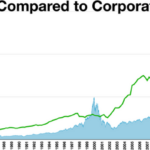At CPAC in Budapest, Republicans pay tribute to Viktor Orban; ‘It’s a natural alliance’
- U.S. conservatives have found a home away from home in Hungary
- Conservative Political Action Conference (CPAC) held in Budapest for the third year in a row
- Mutual admiration between U.S. conservatives and Hungarian Prime Minister Viktor Orban
- Concerns about Orban’s consolidation of power and move away from democratic norms
- Orban’s stance on Ukraine and objections to EU aid package
- Orban’s fight against Brussels and his appeal to the right
- Hungary’s nationalist policies on media, migration, and family values
- Orban’s transformation of Hungary into an ‘illiberal state’
- Criticism of Orban’s leadership and concerns about giving up on democracy
- Strong ties between Orban and former President Donald Trump
U.S. conservatives have found a home away from home in Hungary, as evidenced by the Conservative Political Action Conference (CPAC) being held in Budapest for the third year in a row. This gathering highlights the mutual admiration between the conservative wing of the Republican Party and Hungarian Prime Minister Viktor Orban, known for his nationalist vision and culture wars against liberal policies. While Orban’s leadership has drawn criticism for its consolidation of power and move away from democratic norms, American conservatives, including former President Donald Trump, continue to support him. The alliance between U.S. conservatives and Hungary’s Orban government is seen as a natural one, with Orban’s nationalist policies resonating with those focused on culture war issues such as abortion, LGBTQ rights, and immigration. However, concerns remain about Orban’s stance on Ukraine and his fight against Brussels, as well as the transformation of Hungary into an ‘illiberal state’. Critics argue that the admiration for Orban shown by Trump and conservatives is evidence of a gradual abandonment of democratic norms. The strong ties between Orban and Trump have further solidified this love affair between U.S. conservatives and Hungary.
Factuality Level: 3
Factuality Justification: The article provides a detailed account of the relationship between U.S. conservatives and Hungarian Prime Minister Viktor Orban, including various perspectives and criticisms. However, the article lacks balance as it leans towards portraying Orban and his government in a more positive light, with minimal criticism of his authoritarian tendencies and undemocratic actions. The article also includes opinions presented as facts, such as the assertion that Hungary has shown nationalism is not a bad thing.
Noise Level: 3
Noise Justification: The article provides a detailed analysis of the growing relationship between U.S. conservatives and Hungarian Prime Minister Viktor Orban. It explores the mutual admiration between the two parties, the concerns raised by critics about Orban’s leadership, and the implications of this alliance on democratic norms. The article includes quotes from various politicians and experts, as well as examples of Orban’s policies and actions. Overall, the article stays on topic, supports its claims with evidence, and offers insights into the dynamics at play.
Financial Relevance: No
Financial Markets Impacted: No
Presence Of Extreme Event: No
Nature Of Extreme Event: No
Impact Rating Of The Extreme Event: No
Rating Justification: The article does not pertain to financial topics and does not describe any extreme events.
Private Companies: Danube Institute,Heritage Foundation
Key People: Viktor Orban (Hungarian Prime Minister), Donald Trump (Former President), Andy Harris (U.S. Representative), Thom Tillis (U.S. Senator), Rick Santorum (Former GOP Senator and Presidential Candidate), Chris Murphy (U.S. Senator), Steve Bannon (Former White House Chief Strategist), Dalibor Rohac (Senior Fellow at American Enterprise Institute), Kevin Roberts (President of Heritage Foundation)
 www.wsj.com
www.wsj.com 





